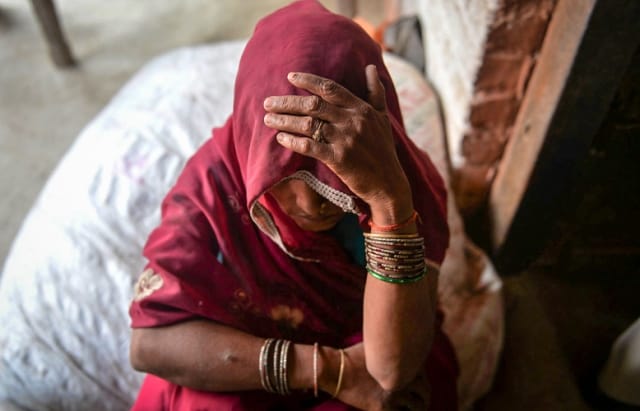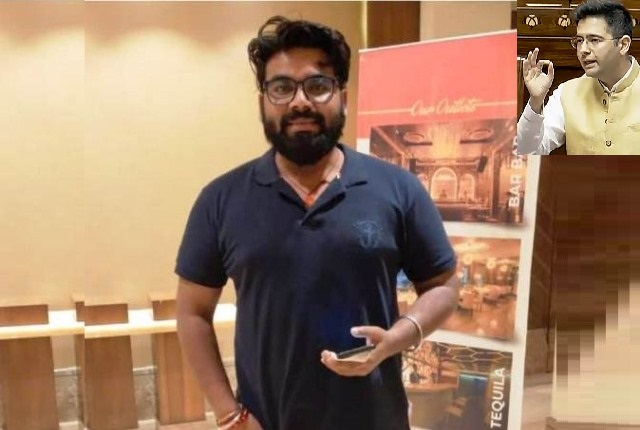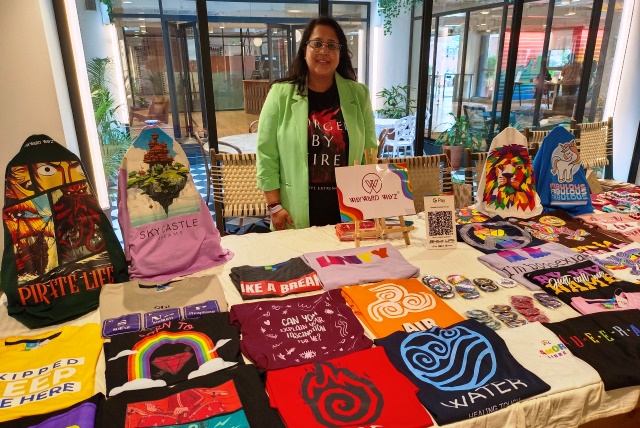
#SheToo – ‘Construction Workers Harassed Verbally'
My husband, 32, moved to Delhi for better wages, but I work in Deoghar, which is near our native place. Although it is easy to find work – you only need to reach early at the town square and wait to be selected by contractors – the eight-hour work schedule can be back breaking. But we need the extra income if we want our two children to get good education.
There are separate wages for a ‘mistri’ (skilled) and ‘beldar’ (unskilled) labour. Women, always unskilled, are paid lesser than men, but we have no grouse there. This is a conventional division. Santhal (read tribal) women get picked first as they are stronger. Women who accompany their husbands are picked next. Single women are the last to be hired, sometimes at a price lower than the ruling daily wage.
ALSO IN #SheToo SERIES: Silent Victims Of Harassment
‘Saab Raped Me When Madam Was Out Of Town’
‘Clients Often Treat Spa Therapists As Prostitutes’
Putting Up With Nosy Parkers And Peeping Toms
People Consider A Young Widow Easy Meat
‘My Employer Spiked My Drink And Raped Me’
‘Beauty Salon Is Not A Pickup Point’
Our ordeal begins after that. The contractors and their sidekicks keep mouthing insults at women workers for slowing down the pace of work. Their choicest abuse is: ‘Tera mahina chal raha hai kya’ (Are you having your period)? This is followed by chuckles and snide remarks from all around. At times, you feel like throwing the mortar at their faces, but then you will get blacklisted and never get work.
Three years ago when my second child was very small, I would bring him to the site and breastfeed him during work. Many an eye would follow me while I took him for feeding. Each time the child cried, it will draw remarks, either lewd or insulting. Rarely would someone intervene and scold the lechers. I have myself never encountered a sexual proposition but yes, these are common at our kind of work.
Tribal women, for instance, are considered easy game by these wolves. It also depends on the contractor. Many of them have a reputation. Usually at the end of the workday when wages are distributed, they target their victims who are coerced by them. Everyone knows it but nobody speaks about it. The golden rule is to keep to yourself, ignore catcalls and physical overtures like squeezing your hand.
I also never tell people that my husband is away in Delhi. The toughest days at work are when I have my period. We do not have access to expensive sanitary napkins; we wash and reuse old clothes. But the eight-hour work plus nearly two hours of travel time can be very stressful. Even when you get some time to change or clean, there are no places where one can do it.
Almost always, we have no access to a washroom. Because of heavy construction activity, there is no empty space to relieve ourselves. There are so many people, vehicles and raw materials lying around which can make changing our soiled clothes, let alone relieving ourselves, a nightmare. The situation is worse when you are working near marketplaces or at a renovation project.
Public washrooms are meant only for men; women have to find corners and squat sometimes in full public view. The men ogle while women passersby turn up their noses at us in disgust. Nobody asks us how we feel. I suppose farm labourers have a better life. Even though they get three-fourths of our wages, they get food twice.
The wives of farm owners are very considerate and give them access to their washrooms on tough days. But farm work is difficult to get and is seasonal. Besides, the farms are shrinking by the day; even big farmers say the yield is no longer worth the labour. It is my children and husband, who calls up daily, who keep me going.
My husband trusts me, he has no issues that I work with other men. He is a kind soul, unlike many of the drunken husbands in the village who beat their wives. He has promised to shift us soon to Delhi, where my children can get English education. I have met some NGO women who come to visit our village and teach us about menstrual hygiene and personal healthcare. I want my daughter to also take up such a role when she grows up and fight for the rights of female construction workers.



